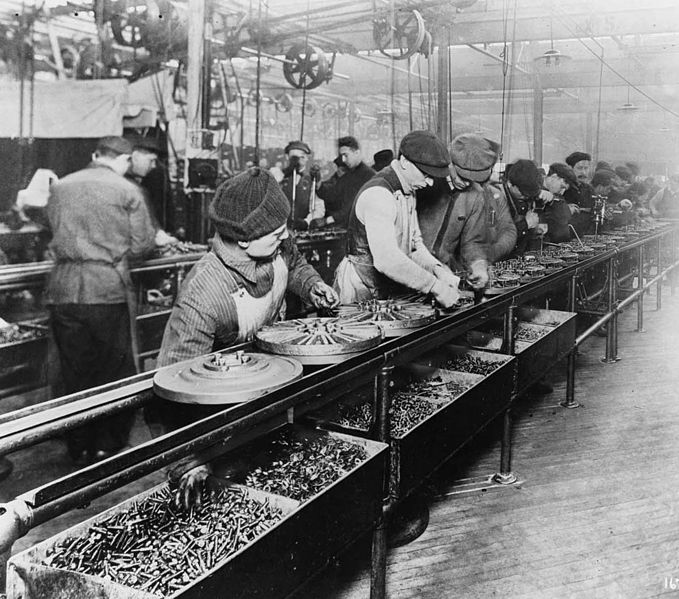Laziness is a good thing.
For as long as civilization has existed, people have been trying to live as well as possible with as little work as possible. That drive has created kings and kleptocrats who get rich by robbing their subjects, but it’s also led to every technology that makes work easier, from horse collars to steam engines to industrial robots.
Think of how few people in the industrialized world work in jobs that have a direct connection to the necessities of life: agriculture, manufacturing, construction. All these industries have become so automated that a relatively small number of people can produce the amount of goods that used to take everyone in society working together around the clock. (For example, farming employed 80% of the U.S. population in 1870, and now employs 2%.) Most of us work in jobs that are several steps removed from the productive flow.
And more innovations are coming. In the next few decades, 3D printers will take over manufacturing jobs that used to require entire specialized factories; self-driving vehicles are likely to displace truck and taxi drivers. Renewable power will finish off the fossil-fuel industry, ending jobs in drilling and mining. Shipping may be taken over by drones.
In the short term, these labor-saving devices cause economic pain as they displace human workers, but in the long run, they make us all more materially wealthy and more secure. Famous economists like John Maynard Keynes predicted that, by our era, productivity would have risen so much that the average person would only have to work a few hours each week. Needless to say, that hasn’t happened.
But I wonder where this trend will take us. We’re nowhere close to a post-scarcity society, but it’s possible that, sometime in the next few decades, we’ll become a post-work society – a “world without work“, as Derek Thompson puts it in the Atlantic.
It’s not that no one will have to work. Millions of people work exceptionally hard and will have to for the foreseeable future. There are necessary jobs at all skill levels that are still impossible to automate. However, it’s always been taken for granted that most people had to work to produce the total quantity of goods and services that society demanded. Even when we became more productive, our wants increased to match, so there was a balance. What would happen if that were no longer the case? What will happen if we become so productive that, say, 50% or 25% or 10% of people working is all that’s necessary to satisfy everyone’s material desires?
The ugly scenario is a permanently unemployed underclass, something that we arguably already see in distressed Rust Belt cities like Detroit and severely poor regions like Appalachia. If this becomes widespread, it’s hard to see how we’ll avoid serious social unrest.
There are more optimistic solutions, but most of them require a major transformation of society of some kind. Some economists propose a universal basic income, although I think this would create formidable tragedy-of-the-commons problems. If the UBI is high enough that no one has to work, why would anyone choose to work, especially in jobs that are tedious, dangerous, or difficult? Yet the UBI would collapse unless enough people chose to do this.
Another option, one that’s been successfully used in high-productivity countries like Germany, is job-sharing. Rather than some people working full-time and others unemployed, everyone works part-time (or, as the financial-independence community envisions, everyone has a short full-time career and then a long retirement). This is closer to Keynes’ prediction, although it would be complex and difficult to coordinate across all of society. Most of all, it would require a more equitable distribution of capital than we currently have.
Image credit: Wikimedia Commons
